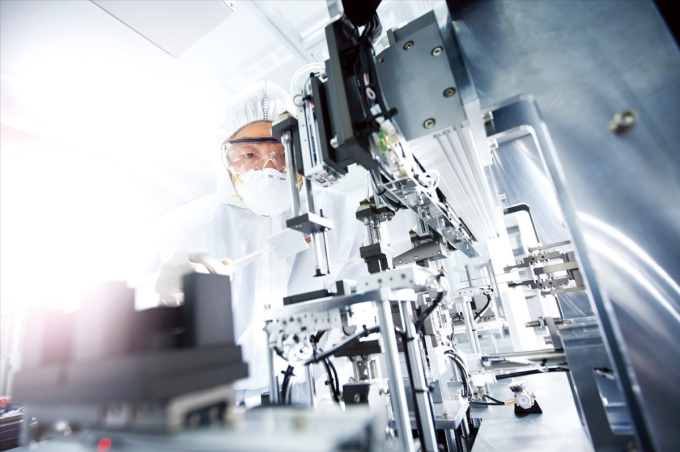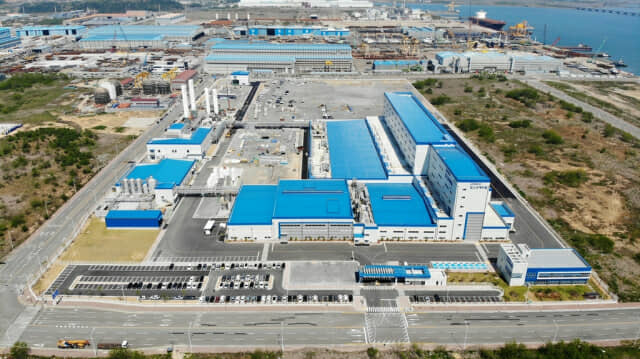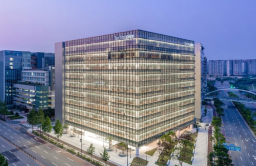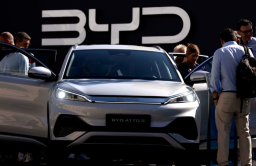-
KOSPI 2577.27 -2.21 -0.09%
-
KOSDAQ 722.52 -7.07 -0.97%
-
KOSPI200 341.49 +0.02 +0.01%
-
USD/KRW 1396 -2.00 0.14%
POSCO Chem becomes supplier for GM-LG Energy Solution JV
EV battery materials
POSCO Chem becomes supplier for GM-LG Energy Solution JV
By
Dec 09, 2020 (Gmt+09:00)
2
Min read
News+

POSCO Chemical Co., a secondary battery materials unit under POSCO, saw its share price surge on announcing that it has secured a contract worth billions of dollars with Ultium Cells LLC, a US-based joint venture between General Motors and LG Energy Solution.
On Dec. 9, POSCO Chemical closed at 105,500 won ($97), up 15.93%, with foreign investors scooping up a net 6.2 billion won ($5.7 million) worth of shares in the company.
On the same day, the company announced that it would supply billions of dollars worth of cathodes, a key material for electric vehicle batteries, for Ultium Cells, which is currently constructing an EV battery cell manufacturing facility in Ohio, US.
The joint venture between GM and LG is set to have an annual capacity of more than 30 gigawatt hours (GWh).

Industry watchers say POSCO Chemical's aggressive investments have begun to bear fruit. The company currently has an annual cathode production capacity of 40,000 tons, but this year it invested around 600 billion won ($553 million) in its Gwangyang factory located southwest of Seoul to expand the capacity to 60,000 tons.
If all goes as planned, POSCO Chemical will be able to deliver 400,000 tons of cathode in annual production by 2030, alongside boosting its production of anode from 40,000 tons to 260,000 tons.
POSCO Chemical’s investments in facilities and equipment are likely to tie into earnings, industry analysts say. According to financial data provider FnGuide, market consensus for POSCO Chemical’s revenue and operating profit for 2021 stands at 2.1 trillion won and 135.5 billion won, respectively, up by 33.0% and 108.4%.
While the company’s forward 12-month price to earnings ratio of 50.83 appears to be a burdening factor, POSCO Chemical will be able to maintain steady growth compared to its competitors thanks to the speedy growth trend in the EV market alongside POSCO group’s full support.
Earlier this month, POSCO, Korea’s largest steelmaker, unveiled its goal of becoming the world’s top player in the global EV battery materials market by 2030 by establishing a value chain from raw material procurement to the production of battery materials.
POSCO Chemical is at the forefront of this long-term project, with an aim to gain 20% share of the global market by posting 23 trillion won in sales by that time.
The company also plans to develop a next-generation EV battery, called an all-solid-state battery (ASSB), enabling longer mileage and a shorter charging time than current EV batteries due to its higher energy density.
Write to Bum-jin Chun at forward@hankyung.com
Danbee Lee edited this article.
More To Read
-
 CryptocurrenciesRedotPay lands in Seoul with crypto cards
CryptocurrenciesRedotPay lands in Seoul with crypto cardsMay 09, 2025 (Gmt+09:00)
-
May 09, 2025 (Gmt+09:00)
-
 Corporate strategyHankook & Company to set up CVC with $11 mn in funding
Corporate strategyHankook & Company to set up CVC with $11 mn in fundingMay 09, 2025 (Gmt+09:00)
-
 Electric vehiclesBYD’s Atto 3 overtakes Tesla’s Model Y as best-selling EV in South Korea
Electric vehiclesBYD’s Atto 3 overtakes Tesla’s Model Y as best-selling EV in South KoreaMay 09, 2025 (Gmt+09:00)
-
May 08, 2025 (Gmt+09:00)




